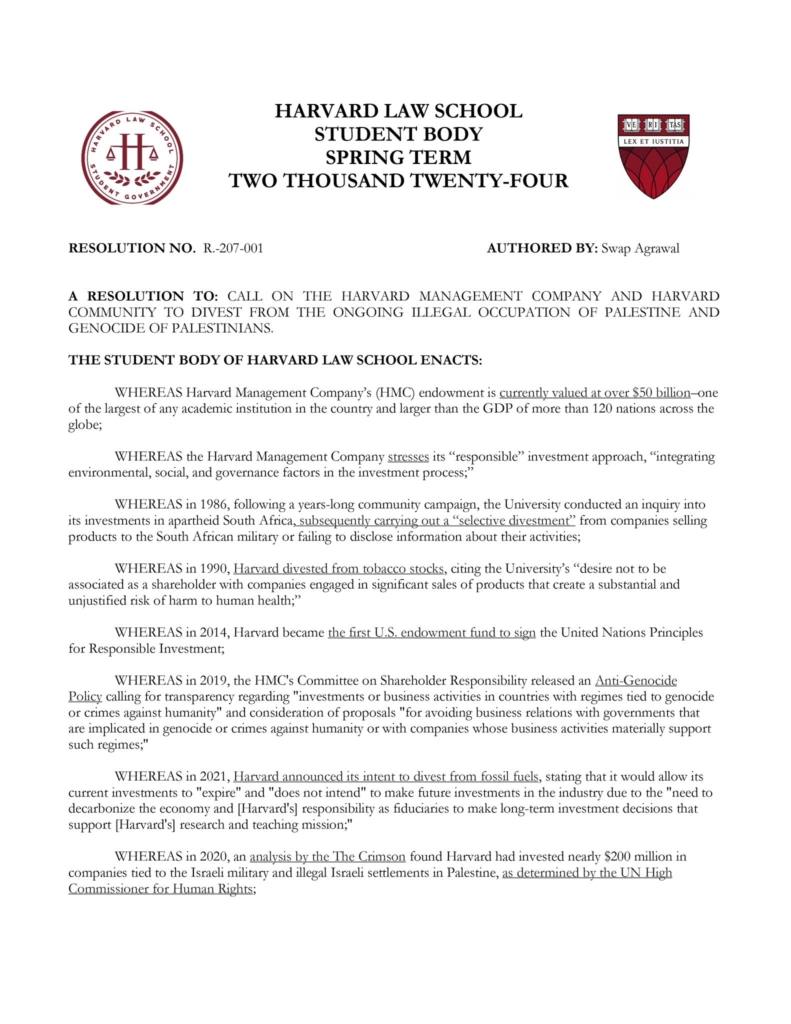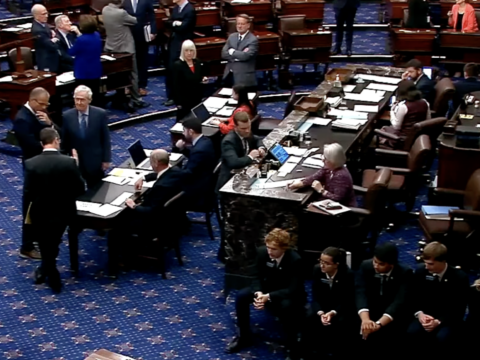CAMBRIDGE, Mass. (Diya TV) — Harvard Law School Student Government faced turmoil as two members resigned following the passing of a contentious resolution urging divestment from Israel. The resolution, passed by a 12-4 vote with 3 abstentions, called on the Harvard Management Company to divest from entities allegedly contributing to the “illegal occupation of Palestine and the genocide of Palestinians.”

In response to the resolution, members Regina De Nigris and Cameron Adkins tendered their resignations, citing strong disagreement with the resolution’s premise. They expressed concern over procedural violations, including an anonymous voting process that deviated from the organization’s constitution and bylaws.
The resolution, proposed by student body co-presidents Swap Agrawal and Tolu Alegbeleye, garnered attention for its accusations against Israel, claiming Harvard’s investments supported “genocide” in Gaza. This assertion drew criticism, with some labeling it as antisemitic and fueling controversy on campus.
The resolution is a growing trend of student activism surrounding divestment campaigns. However, it also underscores deep divisions within the student body and raises questions about the university’s stance on contentious geopolitical issues.
Harvard Management Company, responsible for overseeing the university’s investments, has yet to issue a formal response to the resolution. Meanwhile, university spokesperson Jason A. Newton reiterated Harvard’s opposition to boycotts targeting Israel and its academic institutions.
Critics of the resolution argued that it unfairly targeted Israel and failed to adequately consider the complexities of the Israeli-Palestinian conflict. They expressed concerns about the resolution’s impact on campus discourse and the university’s reputation.
Despite the controversy, proponents of the resolution hailed it as a victory for human rights and social justice. They pointed to similar divestment efforts at peer institutions and called on Harvard to align its investment practices with ethical considerations.
The passage of the resolution highlighted ongoing debates surrounding Israel and Palestine on college campuses across the United States.



